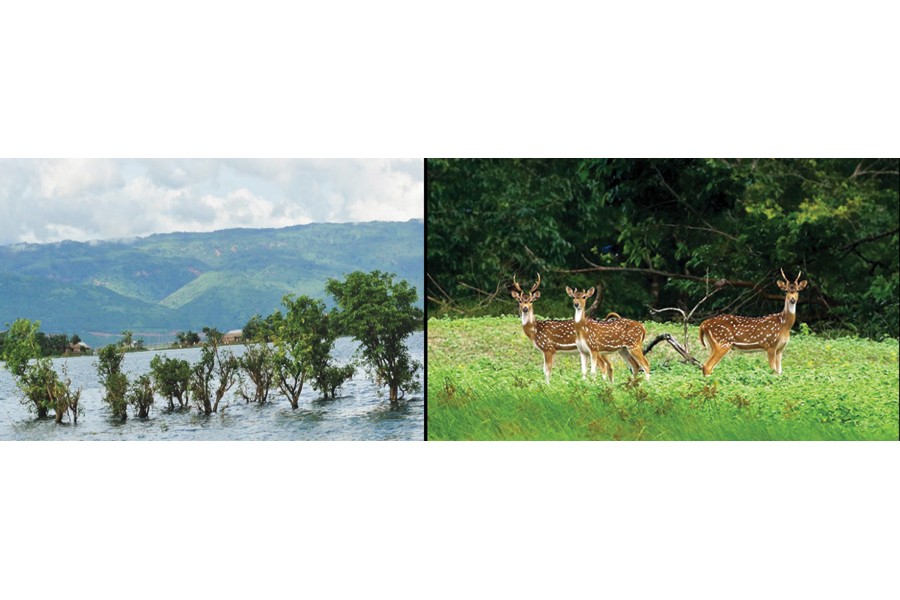The pride of Bangladesh is its rivers, with one of the largest networks in the world and a total of about 700 rivers, including the Ganges-Brahmaputra Delta. This gives the country a riverine nature which is reflected in the lifestyle, custom, economy and history of the people of Bangladesh. The country (in South Asia, between 200 34/N and 260 33/N latitude and between 88001'E and 92041/E longitude) is bordered by India to the north, east and west and Myanmar for a small portion in the south-east. The entire south of the country is occupied by the Bay of Bengal. Bangladesh is located in a humid low-lying alluvial region with a sub-tropical monsoon climate. The heavy monsoon rainfall, coupled with the low altitude of many parts of the country, makes flooding an annual phenomenon in Bangladesh. More than two-thirds of the country's landmass can be classified as wetlands. Hence, it is evident that Bangladesh is a land which is dominated by wetlands.
Wetlands are some of the most biologically diverse ecosystems on Earth that provide a range of ecological, cultural, socio-economic and commercial services and are home to a significant number of plant and animal species of local and global importance.
This unique ecosystem provide home to hundreds of species of aquatic plants, fishes, birds and other wildlife. These wetlands provide critical habitats for thousands of migrating birds, and are an important source of income and nutrition for millions of rural people. Although these wetlands are the arteries of the nation, they are threatened by anthropogenic activities. The wetlands of Bangladesh can be classified on the basis of their hydrology and ecology. A significant amount of wetland has already been degraded due to agricultural and industrial development throughout the country. A properly-implemented sustainable wetland conservation plan is urgently needed.
Bangladesh is a signatory to the Convention on Wetlands. The deltaic country currently has two sites designated as 'Wetlands of International Importance' (RAMSAR sites) -- the Sundarbans Reserved Forest and Tanguar Haor, with a surface area of 611,200 hectares. World Wetlands Day is celebrated on February 02 every year, commemorating the 1971 signing of the Ramsar Convention -- an international treaty for the conservation and sustainable use of wetlands of the world. The World Wetlands Day 2019 convened under the theme, 'Wetlands and Climate Change'. In Bangladesh, long-term studies of the response of wetland areas to probable impacts of climate change are lacking. More researches are required to assess the future losses of wetland areas due to climate change. Such degradation needs to be placed in the context of the continuous worldwide losses of wetlands due to human activities.
Gradually, the wetlands are in decline due to different categories of threats like over-use, siltation and the use of more and more areas for agriculture and development to meet the demands of the growing population. To ensure the wise use of wetlands, the values of wetlands, causes and effects of wetlands degradation, as well as the present wetlands management approach need to be analysed.
Wetlands management is not addressed separately in water management activities of Bangladesh. In order to balance human needs and wetlands conservation, a community-based wetlands management approach has been taken, but this is not enough to prevent the degradation of wetlands. Therefore, Bangladesh now needs a comprehensive strategy combining political, economic, social, and technological approaches to stop further degradation of wetlands. Wetlands management should be incorporated into a system of integrated land and water use and, indeed, into the socioeconomic system of the country. Policies, strategies, and management plans for sustainable use and conservation of wetlands of the country must be based on solid knowledge and understanding of their ecological and socioeconomic functions and processes.
Enayetullah Khan, Editor-in-Chief, UNB and Dhaka Courier, is Chairman of WildTeam.


